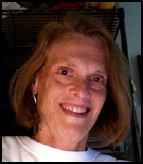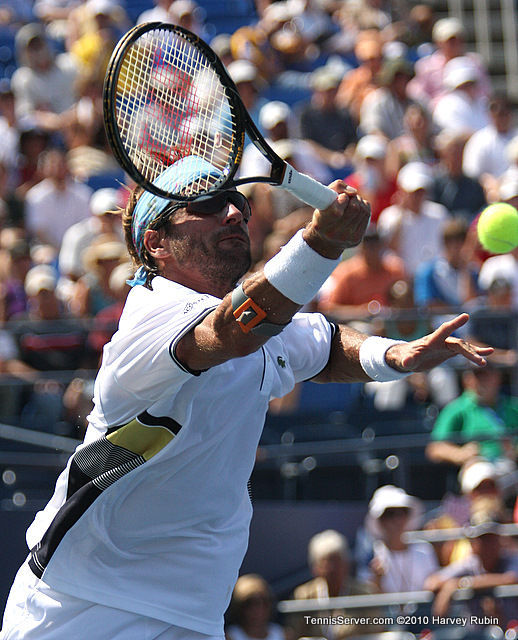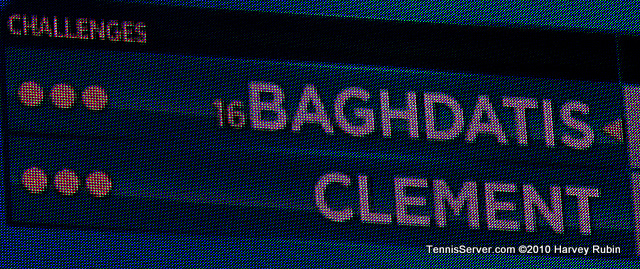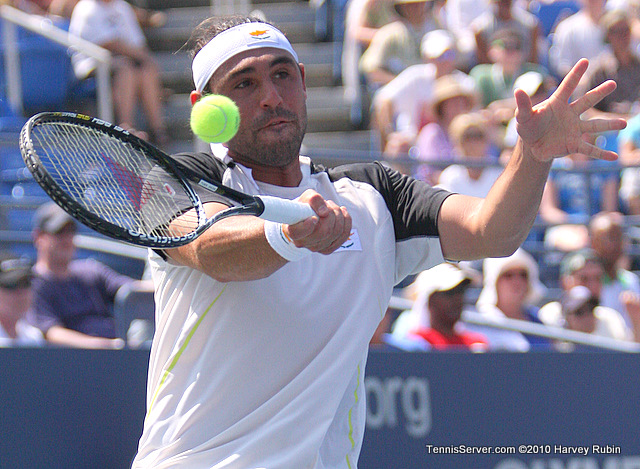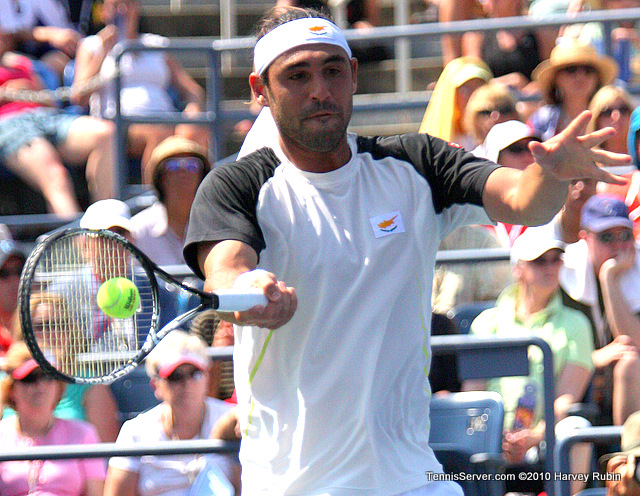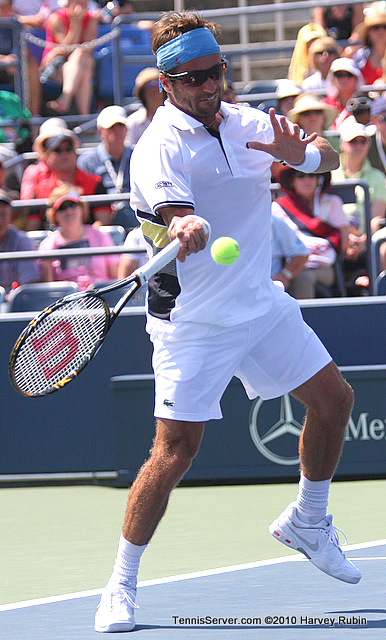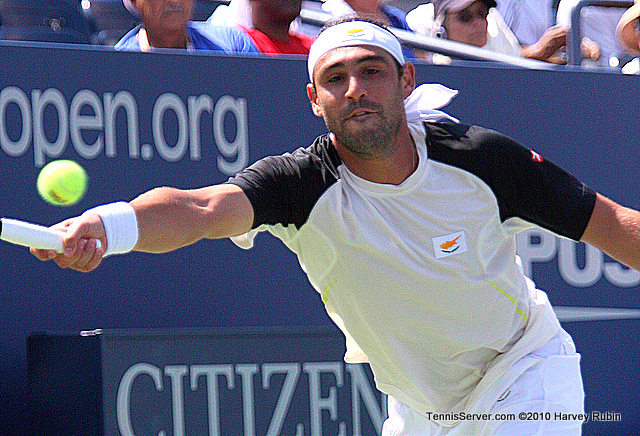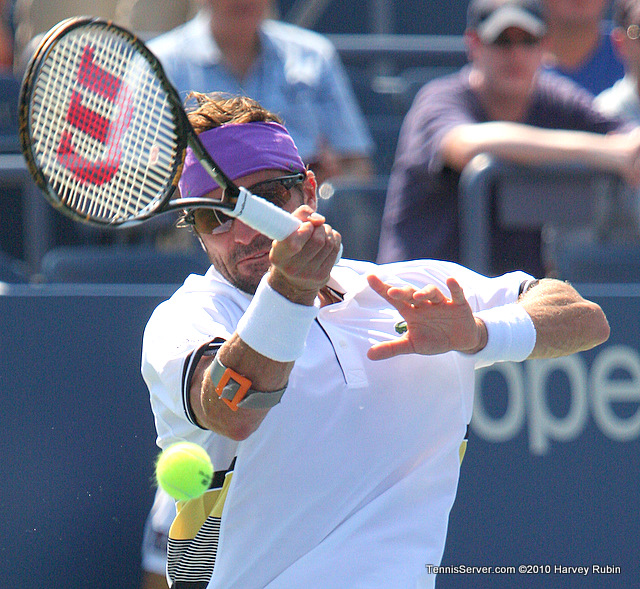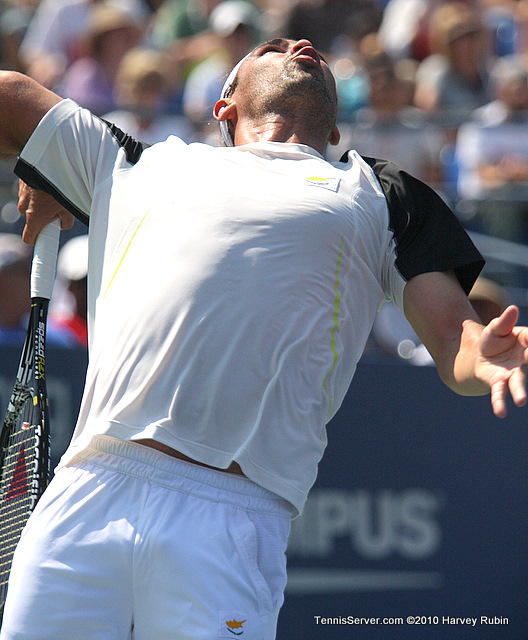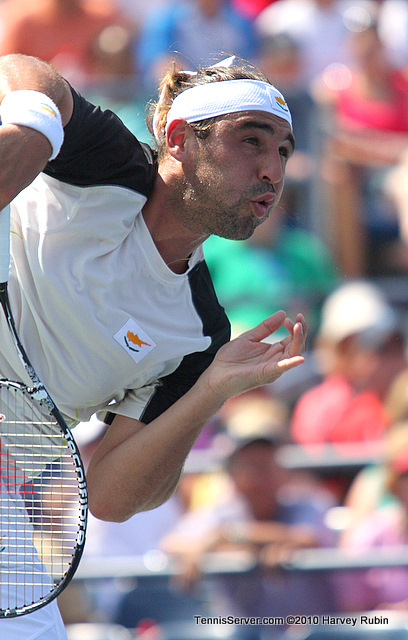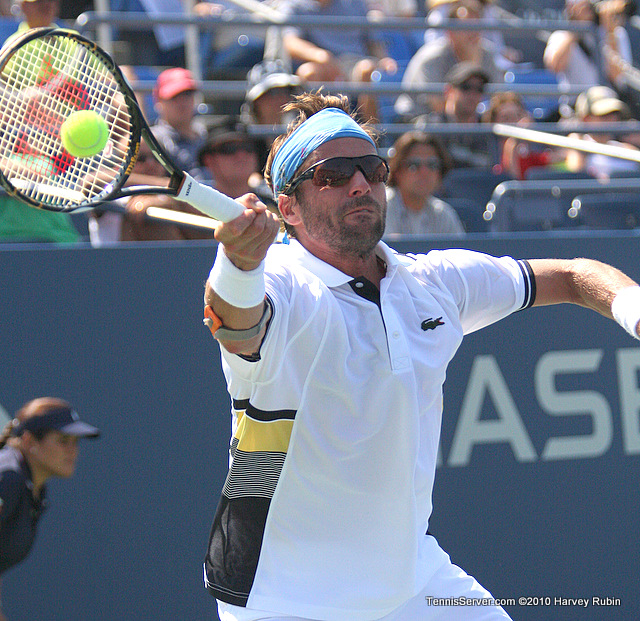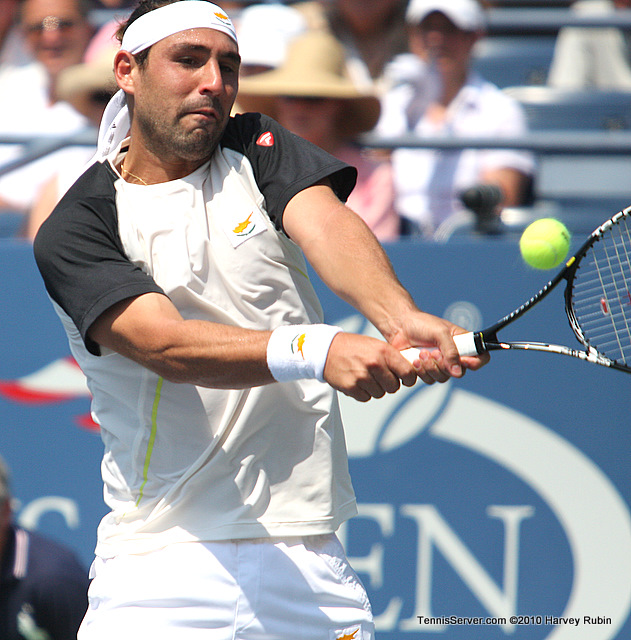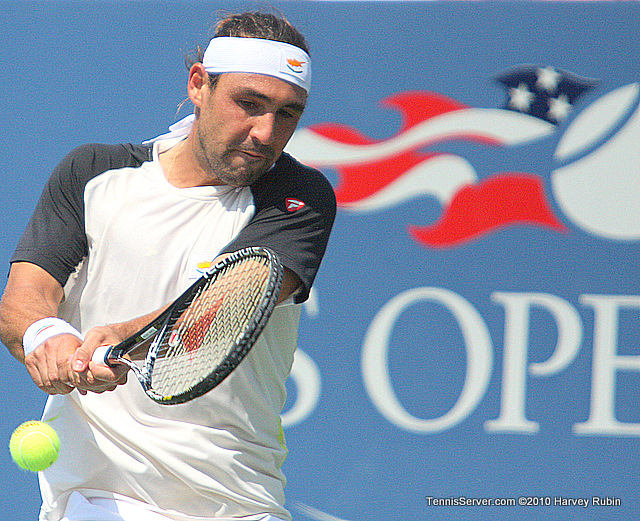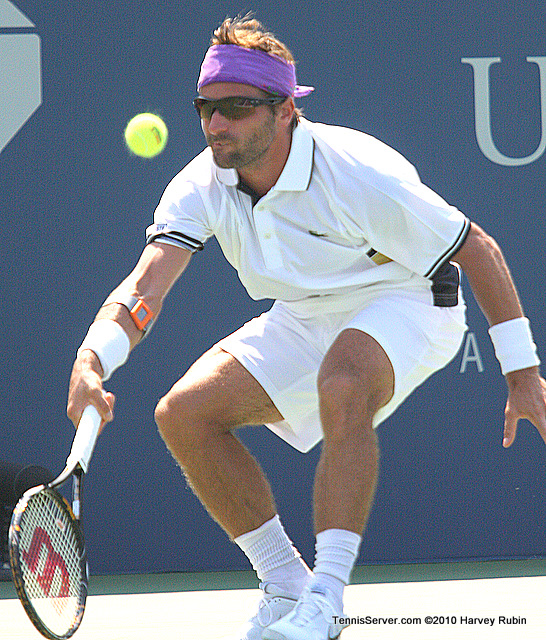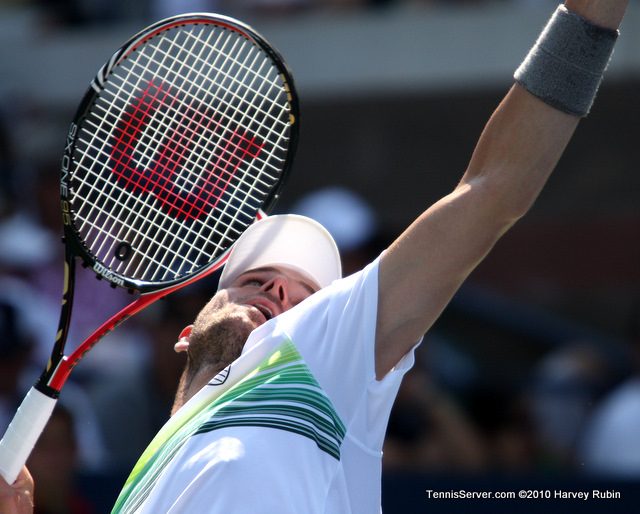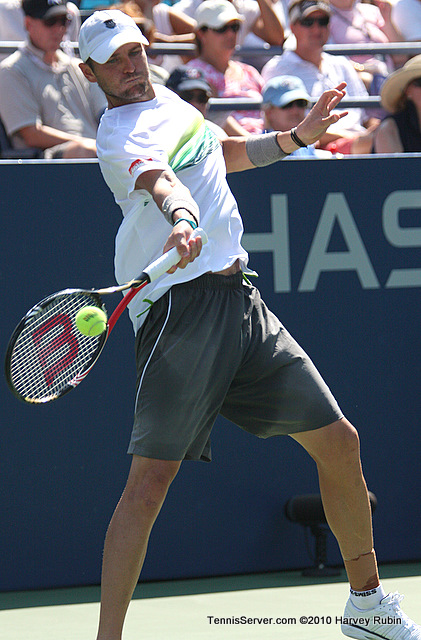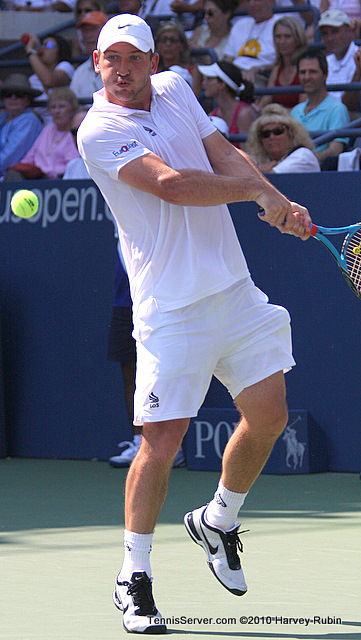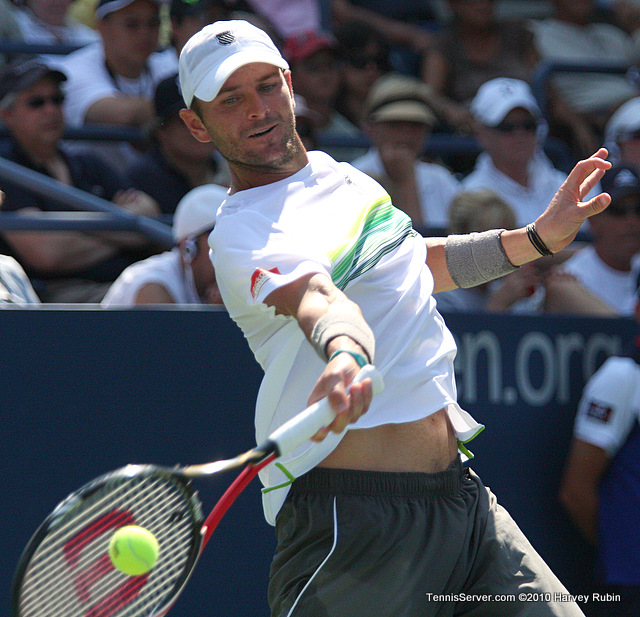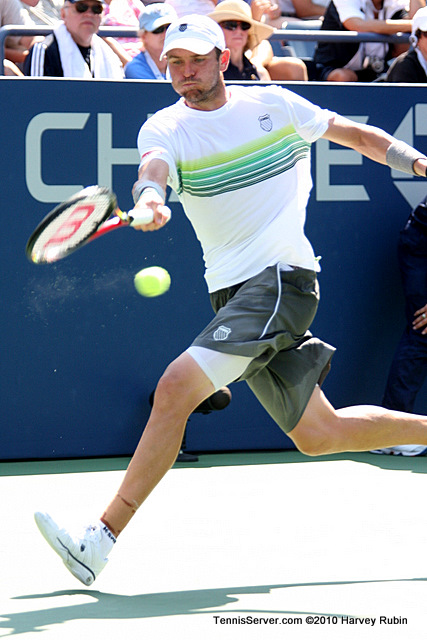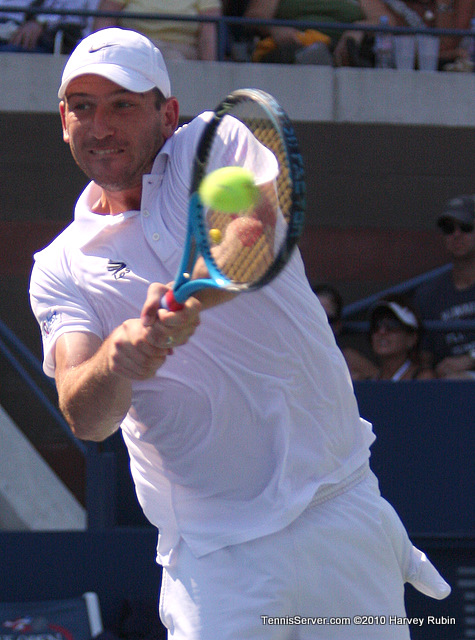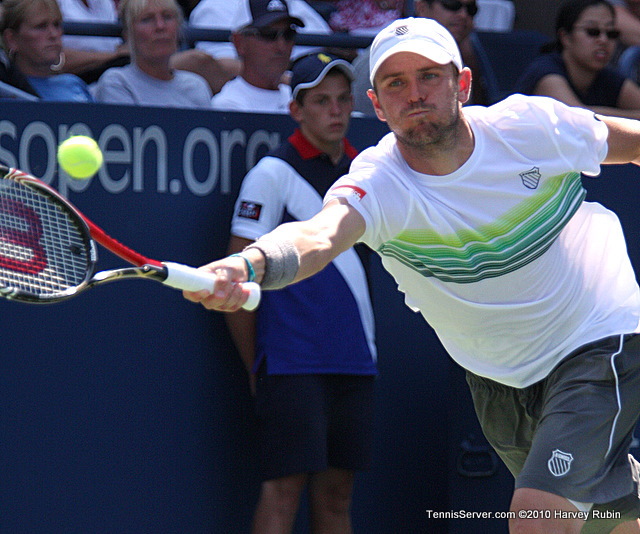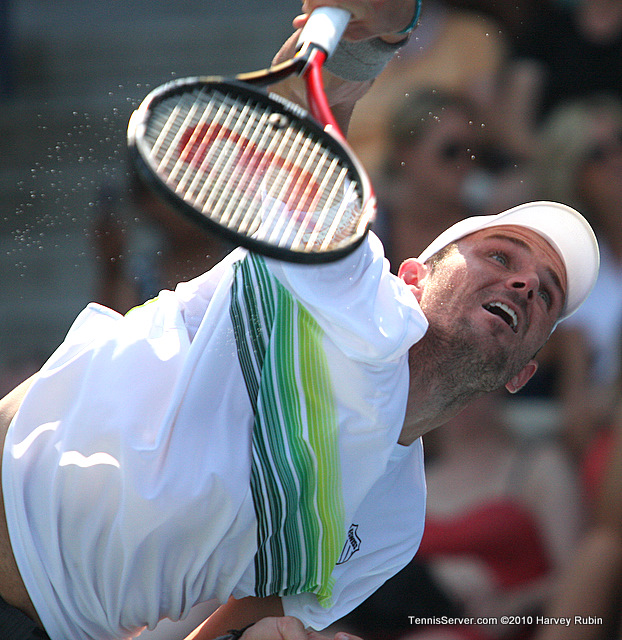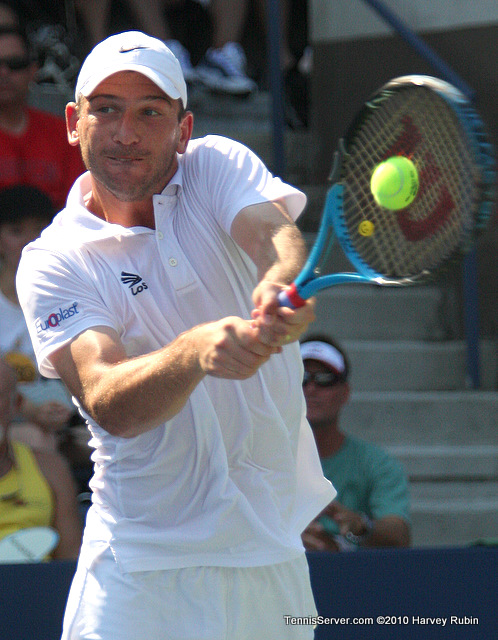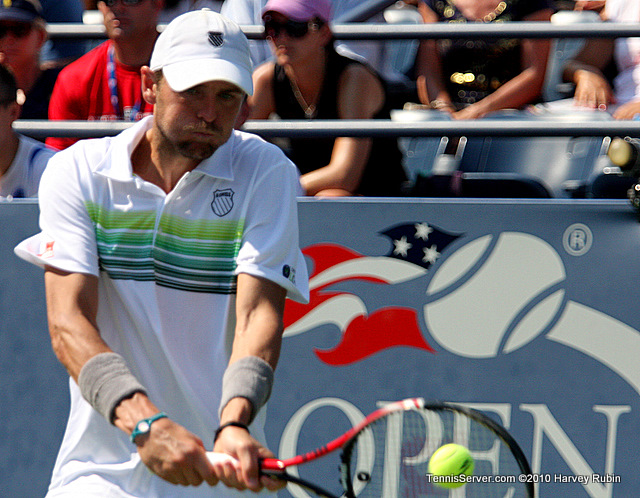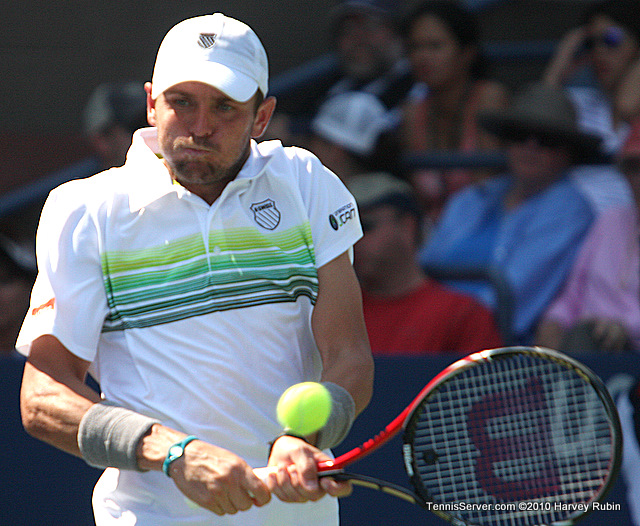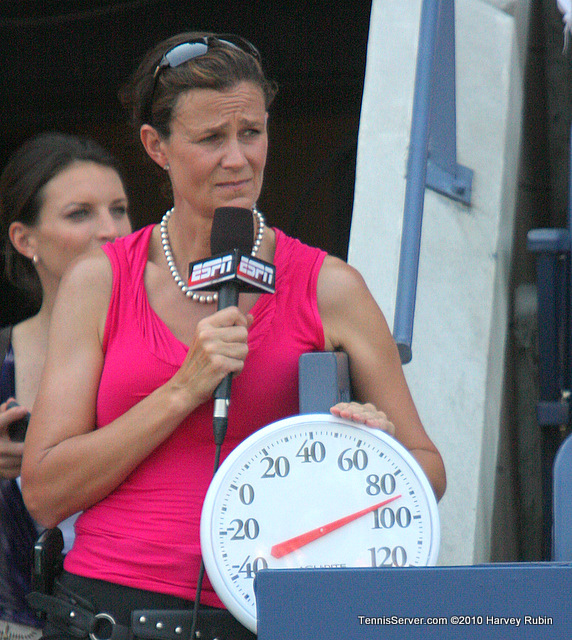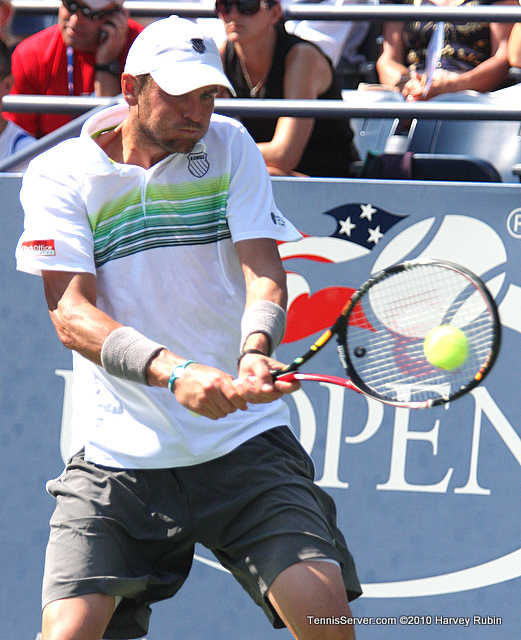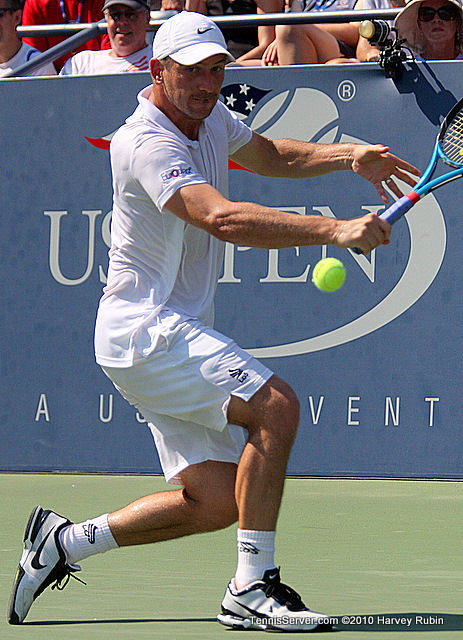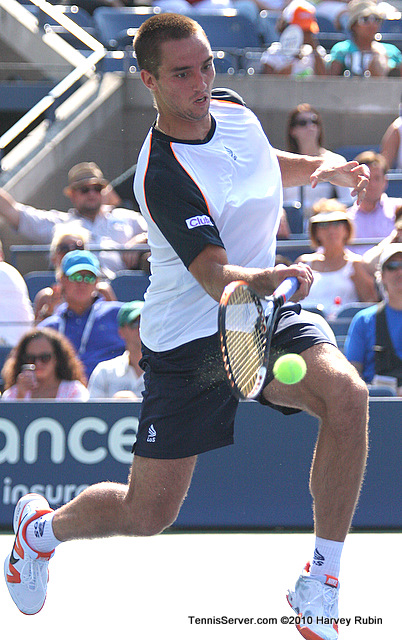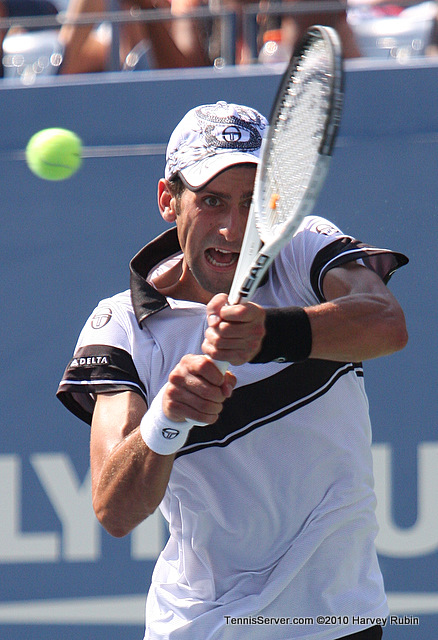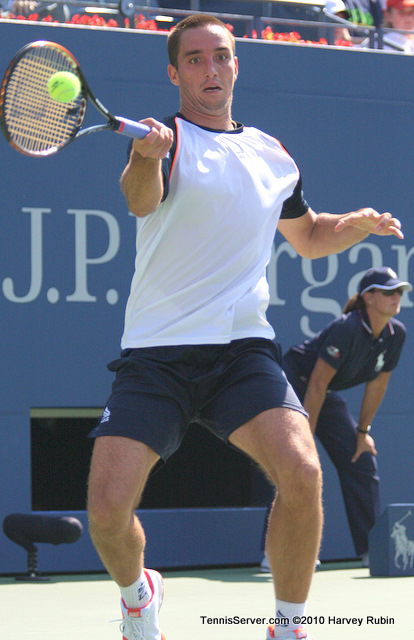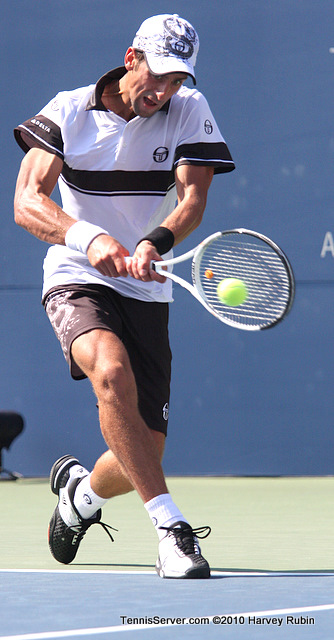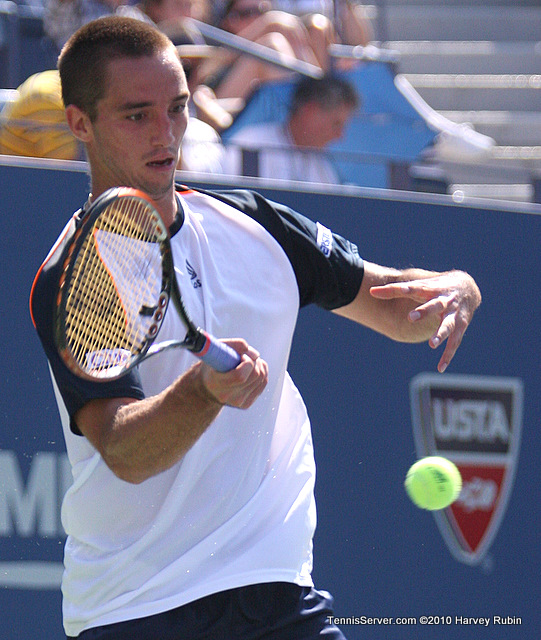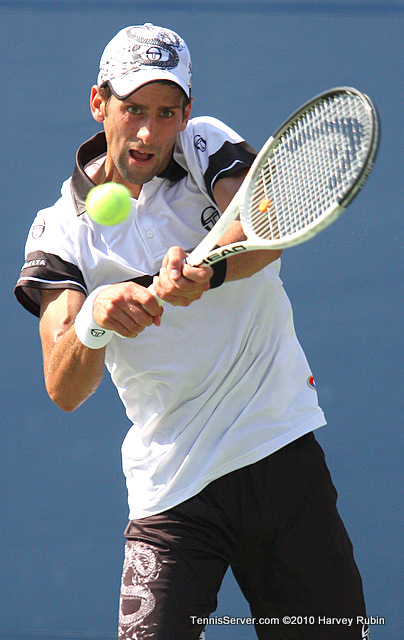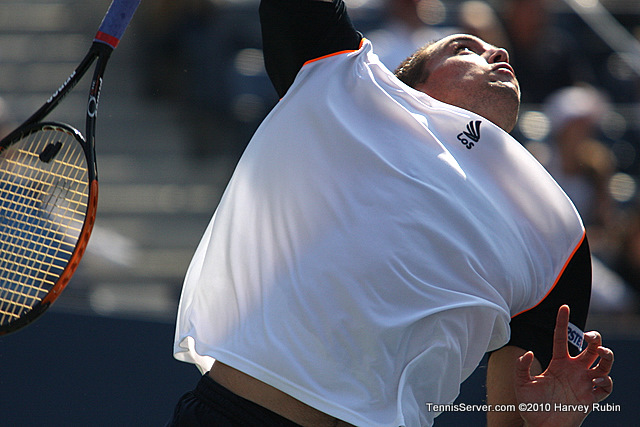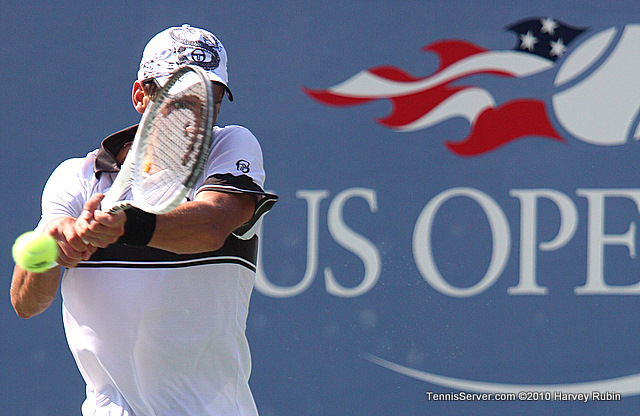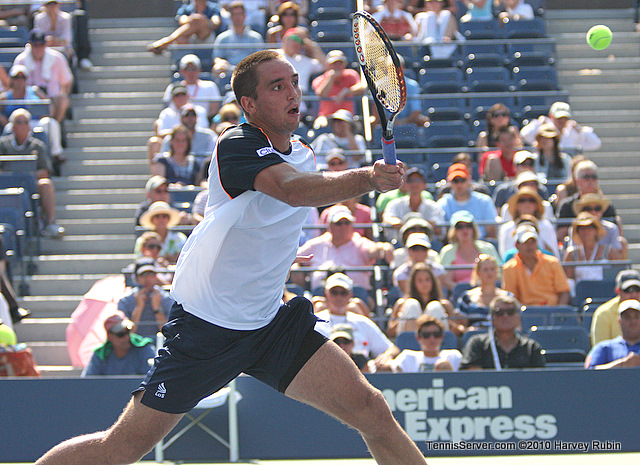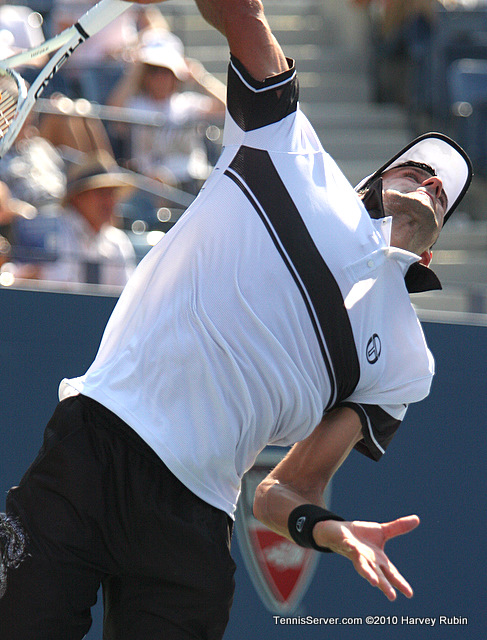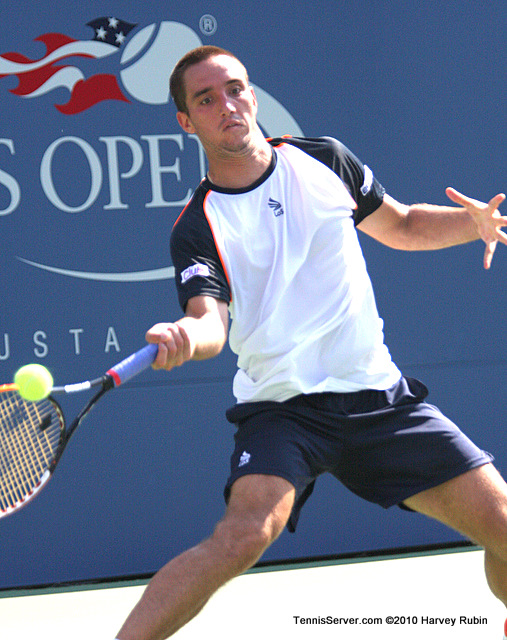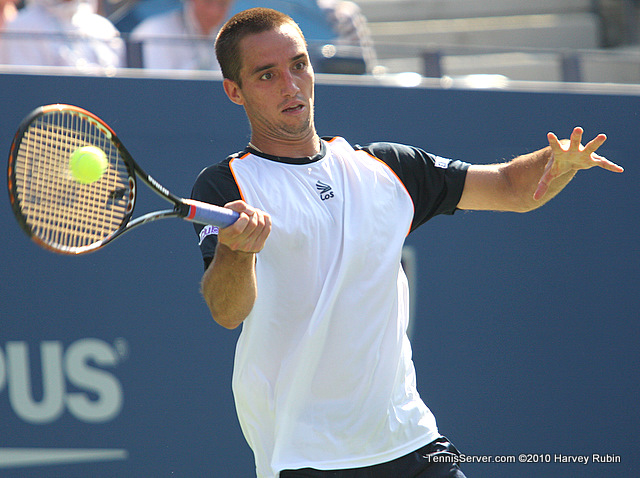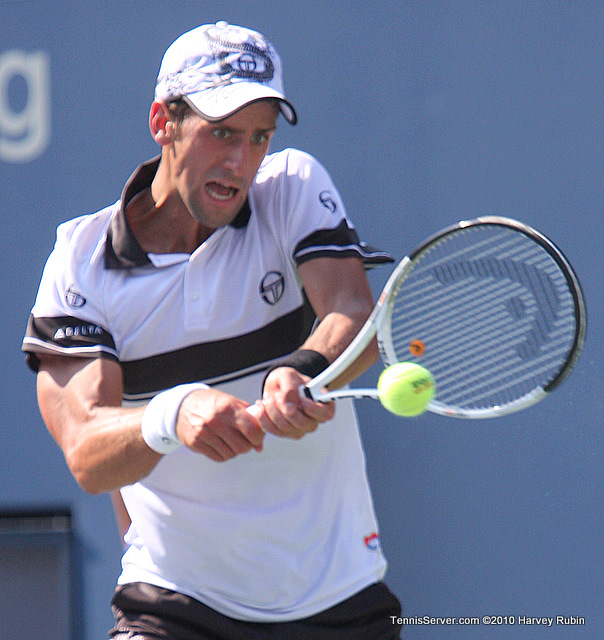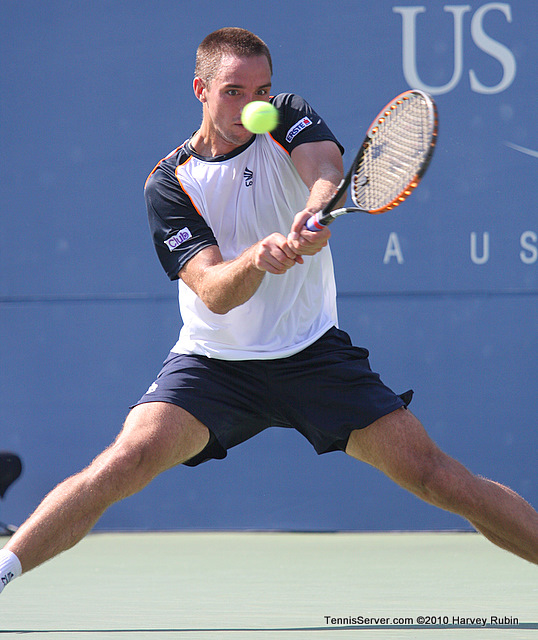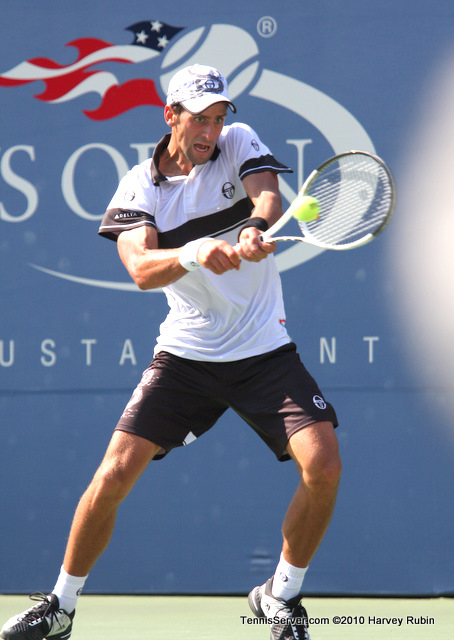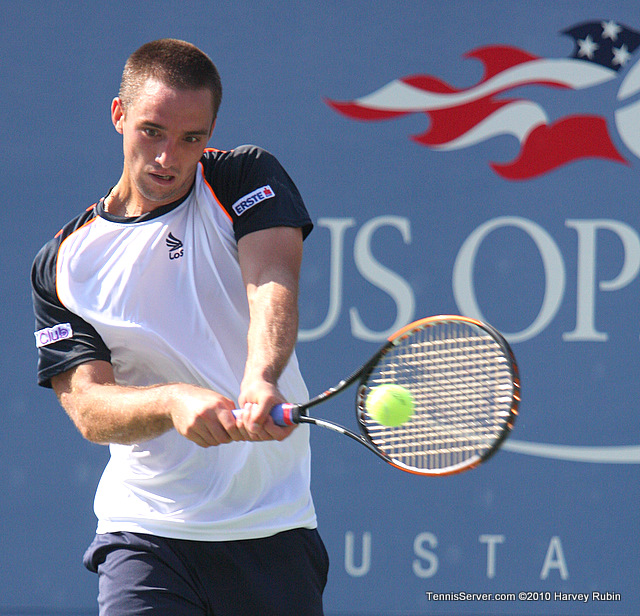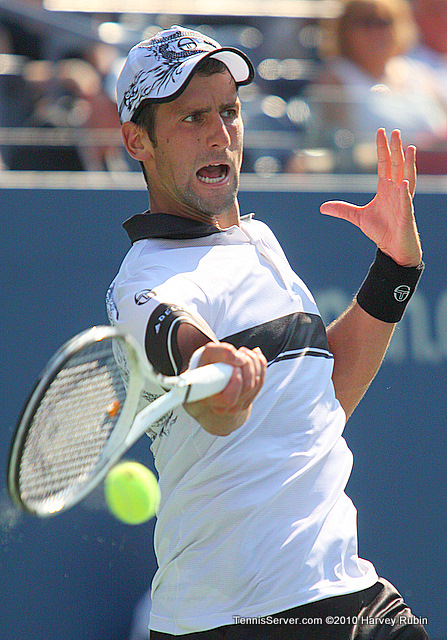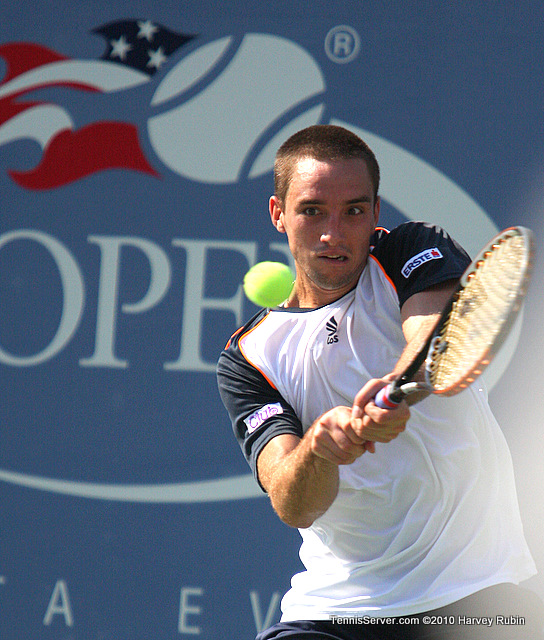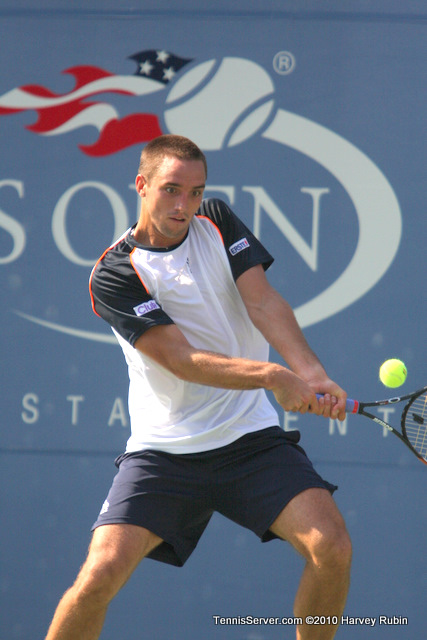What's Age Got To Do With It?
August 31, 2010 -- Marcos Baghdatis arrived at the Billie Jean King National Tennis Center as a threat to the dominant four: Rafael Nadal, Roger Federer, Novak Djokovic and Andy Murray. The charismatic Cypriot had had a good summer on the hard courts of America. He was injury free. He was humbled, having fallen out of the top 100 to then claw his way back and enter this year's U. S. Open as its #16 seed.
A very respectable bounce from a player everyone seems to love as soon as he turns and smiles your way.
But today, Marcos's dreams of a deep drive through the draw in New York came up short. Thirty-two-year-old Frenchman Arnaud Clement sustained his consistency against a defensive Baghdatis in five grueling sets on a piping hot afternoon on Louis Armstrong Stadium.
"I couldn't play aggressive," Baghdatis said. "I was heavy on court. Defensive... giving lots of points away."
Defensive is the last word you'd pick to describe a hot-playing Baghdatis. Shot maker... yes. Smooth... yes. But not defensive. Marcos sails through matches when he's in control with his strong baseline game and smart tactics that include everything from deft drop shots to aces.
Today Baghdatis served 22 aces to Clement's 6. But aces don't win a match, even if your opponent is known more as a 'doubles specialist,' and even if your opponent is old... like over thirty and playing his 12th U. S. Open.
Baghdatis's impressive summer during the U. S. Open Series, a string of tournaments that lead to the Big Apple, may have stretched one stop too many. He played Los Angeles, losing in the quarters. He was runner up to David Nalbandian in Washington. Bagged out in the first round in Toronto. Lost in the semifinals in Cincinnati. Then went to New Haven for one more stop. One more chance at improving his game a week before the Open.
New Haven has problems attracting big names because of when it's scheduled. Baghdatis was welcomed in New Haven after a slew of premier players canceled. They gave him the number one seeding position. He played three rounds, to the quarterfinals, and lost to the eventual champion, Sergiy Stakhovsky.
Maybe the last stop broke the spirits and surpassed the physical limits of Baghdatis, leaving only four days to recover from weeks of hotly contested tennis. He can't reverse engines now, but he can plan a schedule for next year that takes in account enough down time to rest, recover and relish his accomplishments.
The veteran Clement found conditions very difficult today but said he played his best tennis in the fourth and fifth sets -- when every point mattered.
"I tried drop shots and volleys. After two, three shots in a rally my legs were burning," Clement began. "It was beautiful for me that I beat Baghdatis in a Grand Slam."
Clement came into the Open with a poor track record. He didn't make it out of qualifications in Los Angeles and Toronto, lost in the first round in D. C., lost in the second round of qualifications in Cincinnati, and left New Haven for the glamour of New York because he had lost in the first round. He wasn't expecting much from himself today, which was a good place for his mind to rest. It may have given him the margin of victory.
Preparations for Grand Slams and Master 1000 tournaments are an art, with a hefty dollop of economics. Wealthier players and those with high rankings, which are usually one and the same, can afford to take off weeks. Rafael Nadal and Roger Federer vacationed for six weeks between Wimbledon and Rogers Cup, in Toronto. They are privileged, and can plan a bevy of schedules that will pinpoint the optimal route that maintains their ranking and down times.
The balance between tournaments to play and time off is actually, then, an oxymoron. Baghadatis had, and wanted, to improve his ranking, so he choose a tighter schedule. One that took him to the brink of the U. S. Open. He paid a price for that today, if anyone can say assuredly that fatigue directly caused the loss. But it's clear it could have been the background heat that took Baghdatis away from his shot-making excellence and keen mental game.
"I've been out one month plus three weeks," Baghdatis began. "Maybe I'm tired... mentally and physically."
By no means is Arnaud Clement the elder statesmen at the Open. Kimko Date-Krumm held that honor, which for her it truly is an honor. After being off the tour for twelve years, the petite Japanese woman took the advice of her professional race-car-driving husband and gave the tour another go. Date-Krumm will turn 40 in September. She didn't have enough game or talent to beat the 11th seed, and one-time U. S. Open champion, Svetlana Kuznetsova today. However, she stretched the match to three sets and tested the Russian.
On how she finally turned the match around in the third set, Kuznetsova said, with a smile, "I convinced myself I had to win."





 You will join 13,000 other subscribers in receiving news of updates to the Tennis Server along with monthly tennis tips from tennis pro Tom Veneziano.
You will join 13,000 other subscribers in receiving news of updates to the Tennis Server along with monthly tennis tips from tennis pro Tom Veneziano. 